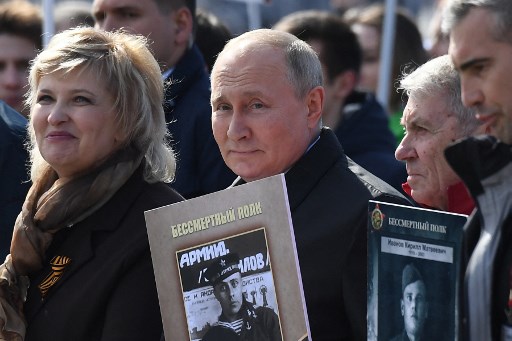
403
Sorry!!
Error! We're sorry, but the page you were looking for doesn't exist.
German Chancellor informs Putin he cannot quote historic philosopher
(MENAFN) German Chancellor Olaf Scholz has strongly criticized Russian President Vladimir Putin for quoting the renowned German philosopher Immanuel Kant during an event commemorating Kant's 300th birthday. Scholz accused Putin of attempting to appropriate the legacy of Kant while misrepresenting the philosopher's ideas to suit his own agenda.
Speaking at the Berlin-Brandenburg Academy of Sciences, Scholz condemned Putin's invocation of Kant, stating that Putin has no legitimate claim to Kant's ideas. He accused the Russian leader's regime of trying to co-opt Kant's work for its own purposes, despite contradicting Kant's fundamental principles.
Immanuel Kant, born in 1724 in Koenigsberg (now Kaliningrad), is celebrated as one of the central figures in German classical philosophy, renowned for his contributions to ethics, aesthetics, and philosophical ontology. Scholz emphasized the significance of Kant's teachings on issues such as state interference in the affairs of other nations, citing Kant's rejection of forced treaties as a means to achieve "perpetual peace."
Scholz's remarks were a direct response to Putin's previous praise for Kant and his advocacy for Kant to be recognized as an official symbol of the Kaliningrad Region. Despite Putin's admiration for Kant, Scholz asserted that Russia's actions in the Ukraine conflict stand in stark contrast to Kant's principles.
Putin's public statements on Kant, including his assertion of Kant's relevance in contemporary society, have drawn scrutiny in light of Russia's geopolitical activities. Scholz's criticism highlights the tension between Putin's admiration for Kant and the perceived divergence of Russian policies from Kantian ideals.
The incident underscores the broader geopolitical dynamics between Germany and Russia, as well as the ongoing debate over the interpretation and application of Kant's philosophical legacy in contemporary politics. Scholz's rebuke serves as a reminder of the complexities inherent in invoking philosophical figures in the context of modern diplomatic discourse.
Speaking at the Berlin-Brandenburg Academy of Sciences, Scholz condemned Putin's invocation of Kant, stating that Putin has no legitimate claim to Kant's ideas. He accused the Russian leader's regime of trying to co-opt Kant's work for its own purposes, despite contradicting Kant's fundamental principles.
Immanuel Kant, born in 1724 in Koenigsberg (now Kaliningrad), is celebrated as one of the central figures in German classical philosophy, renowned for his contributions to ethics, aesthetics, and philosophical ontology. Scholz emphasized the significance of Kant's teachings on issues such as state interference in the affairs of other nations, citing Kant's rejection of forced treaties as a means to achieve "perpetual peace."
Scholz's remarks were a direct response to Putin's previous praise for Kant and his advocacy for Kant to be recognized as an official symbol of the Kaliningrad Region. Despite Putin's admiration for Kant, Scholz asserted that Russia's actions in the Ukraine conflict stand in stark contrast to Kant's principles.
Putin's public statements on Kant, including his assertion of Kant's relevance in contemporary society, have drawn scrutiny in light of Russia's geopolitical activities. Scholz's criticism highlights the tension between Putin's admiration for Kant and the perceived divergence of Russian policies from Kantian ideals.
The incident underscores the broader geopolitical dynamics between Germany and Russia, as well as the ongoing debate over the interpretation and application of Kant's philosophical legacy in contemporary politics. Scholz's rebuke serves as a reminder of the complexities inherent in invoking philosophical figures in the context of modern diplomatic discourse.

Legal Disclaimer:
MENAFN provides the
information “as is” without warranty of any kind. We do not accept
any responsibility or liability for the accuracy, content, images,
videos, licenses, completeness, legality, or reliability of the information
contained in this article. If you have any complaints or copyright
issues related to this article, kindly contact the provider above.

















Comments
No comment